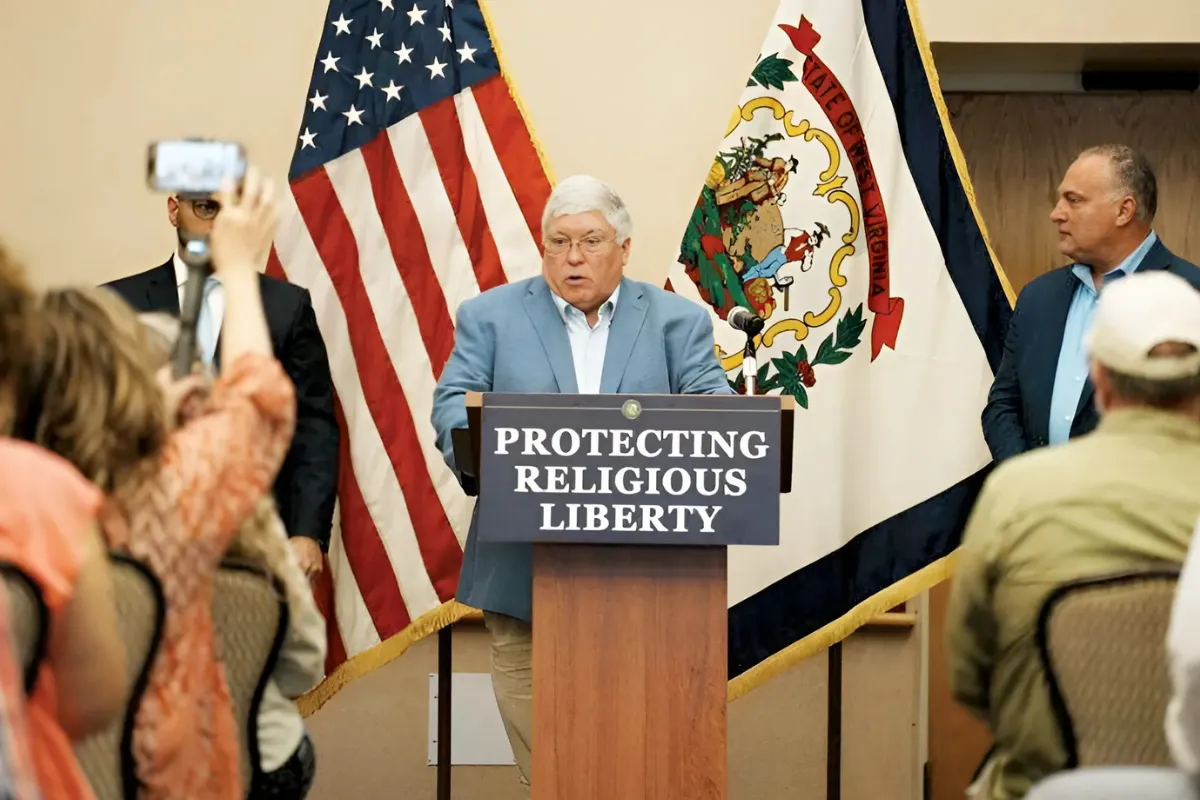West Virginia Governor Patrick Morrisey is publicly supporting a lawsuit aimed at stopping the state Board of Education from enforcing mandatory school vaccination rules that do not allow for religious exemptions.
During a press conference at Tamarack in Beckley on Tuesday, Morrisey voiced strong support for Miranda Guzman, a Raleigh County parent who filed the lawsuit earlier that day on behalf of her child. The legal challenge seeks to block the enforcement of current vaccine requirements for students in public and private schools across the state.
While Morrisey himself cannot file the lawsuit, he made it clear he stands firmly behind it.
“You have an unaccountable set of bureaucrats in the school board that’s trying to take matters into their own hands,” Morrisey said. “That’s unacceptable to me. I fully support Miranda’s ability to seek a religious exemption, and I support her lawsuit against school board bureaucrats.”
The lawsuit targets the West Virginia Board of Education, State Superintendent Michele Blatt, and the Raleigh County Board of Education, following a June 11 vote by the state board. That unanimous decision directed Superintendent Blatt to issue guidance to all county school systems to follow state law requiring student immunizations.
Under current West Virginia State Code, children must show proof of immunization against diphtheria, pertussis (whooping cough), tetanus, polio, measles, mumps, rubella, chickenpox (varicella), and hepatitis B before attending school. Only medical exemptions are permitted—religious exemptions are not recognized.
Morrisey argued that the state’s position ignores the religious rights of families like Guzman’s and reflects government overreach.
“This is the politically unaccountable board who are trampling on her religious freedoms,” he said.
The case marks the latest chapter in an ongoing national debate over vaccine mandates and religious liberty, with West Virginia maintaining one of the strictest immunization laws in the country.
As the lawsuit progresses through the court system, it could have significant implications for vaccine policy, not just in West Virginia but potentially beyond.
















